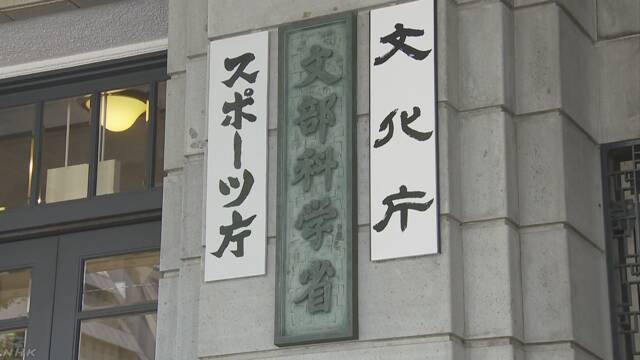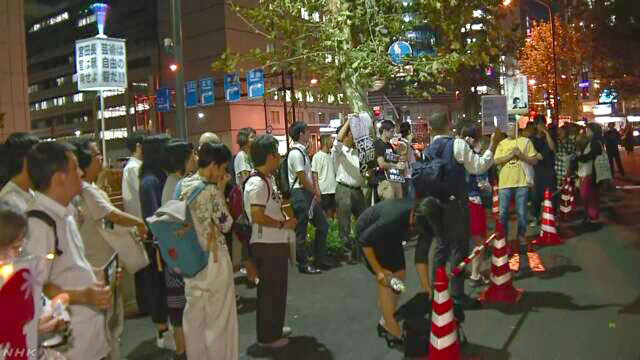Controversial exhibition
The exhibition, titled "After 'Freedom of Expression?'" opened in August 1 but was cancelled after only three days. Organizers say they were flooded with threatening phone calls and complaints over the work symbolizing wartime comfort women. It was made by South Korean artists. The wartime issue has strained relations between Japan and South Korea.
Organizers of the festival are planning to reopen the exhibition next week under certain conditions, including providing safety measures and education programs to explain the work.
Procedural flaw
The Agency for Cultural Affairs announced last Thursday that it will not pay 78 million yen or about 724,000 dollars in subsidies set aside for the Aichi Triennale 2019.
Agency officials say the prefectural government was aware of the possible safety risks, but failed to report them when applying for the subsidies. They say the agency determined in its review that there was a procedural flaw with the prefecture's application.
Education minister Koichi Hagiuda, who oversees the agency, says the decision has nothing to do with the show's content.
Aichi Governor Hideaki Ohmura says he will examine the decision to see if there are reasonable grounds for canceling the subsidies that the agency had initially agreed to provide.
"Canceling a subsidy without valid reason is a serious violation of the freedom of expression guaranteed by the Constitution," said Ohmura. He added that overturning the decision because the event wasn't operated smoothly or reported properly is irrational. He suggested he would take the case to a panel to resolve disputes between the central and local governments.

Rally held against govt.
A rally was held in Tokyo to protest the decision to withhold the subsidies.
The organizers of the rally say more than 200 artists, including those who contributed their works to the event, gathered in front of the Cultural Affairs Agency on Monday evening.
During the rally, participants demanded the decision be retracted, chanting, "Stop bullying art," and "Protect art." An art university student said he feels the decision might amount to indirect censorship, and that it could instill fear in artists.

An expert on constitutional law is critical of the agency's decision, and urges officials to think over the matter again carefully and calmly.
Tokyo Metropolitan University Professor Sota Kimura says withholding subsidies because violent threats have been made is tantamount to inflicting an additional attack on a victim. He says making threats is a crime which the police or judicial authorities should deal with properly.
Kimura argues that subsidies should be granted on the basis of artistic merit. He says withholding subsidies for the reasons cited in this case could give rise to exclusion, or not extending financial support for the expression of certain thoughts and ideas.

